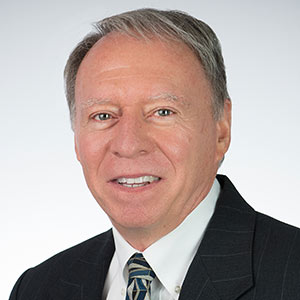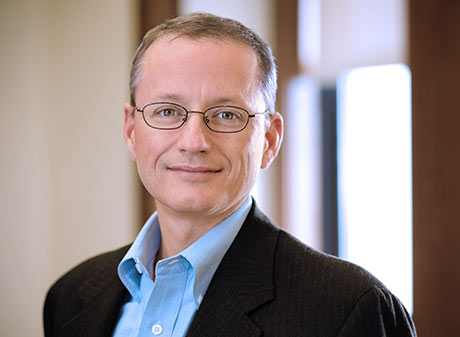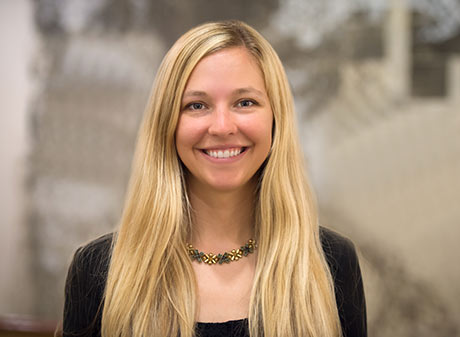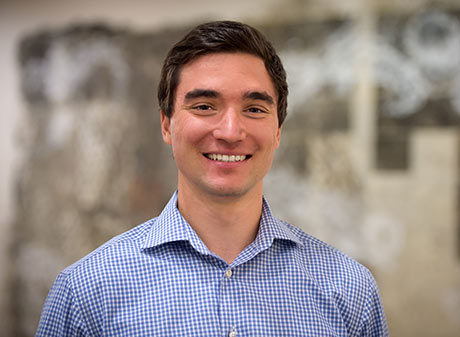Sparking Joy: Can Economics Help with Happiness?
Last week, our economically minded colleagues weighed in on Marie Kondo’s tidying up phenomenon: How might an economist advise people to declutter? But Kondo claims there’s a bigger payoff to relentlessly KonMari-ing one’s clothing, books, paper, miscellany and sentimental bibelots: choosing joy.
Now we’re getting deep. As a follow-up, we asked St. Louis Fed Research members how their economics expertise informs their sense of happiness.
“The value I place on my time gets larger.”
Contributed by: Cletus Coughlin, Economist, Senior Vice President and Chief of Staff

Economists are always thinking about tradeoffs and scarcity. As I think about it, what’s my most scarce resource at this point in my life? It’s time.
You say, “All right, my time is scarce. How do I want to best allocate that time for my own happiness?” Clearly you can’t do everything, so you have to process others’ requests for your time, whether work related or in your personal life. There are many I’d like to contribute to, but I say no because they aren’t high enough on the hierarchy; I’d have to give up other things. That’s the decision-making process I go through.
For years I taught a university class. It was an evening class, three hours, and it was decent money. But you spend your day at work, do that three hours of teaching, and then go to work the next day—it’s like, “whoa.” It gets tougher the older you get. The teaching itself is the three-hour commitment, but there’s preparation and grading that can destroy much of a weekend. Eventually, you think, “Well, I’d rather have my leisure.” The value that I place on my time gets larger as it shrinks.
“Sunk cost is a big deal for me. Stuff happens. Let it go.”
Contributed by: Michael McCracken, Economist and Assistant Vice President

Which economic concepts make me happy? The concept of sunk cost is a big deal for me. I never like to waste money, but my training has taught me that I am better off when I recognize that situations change and, sometimes, the money is just gone.
As an example, my kid was taking taekwondo classes, and we paid in advance for six months’ worth of classes. A couple of months in, it was clear he didn’t like it. We were frustrated by it, and it was like pulling teeth to get to class. Once we truly realized this wasn’t working, and the money was gone, we just stopped and everyone was happier.
Stuff happens. Let it go.
“Understanding my own utility function helps me get the most joy.”
Contributed by: Hannah Shell, Senior Research Associate

Economic training most impacts how I think about spending my time. One of the simplest definitions of economics is the study of allocating scarce resources among unlimited wants. My most scarce resource is time, and understanding my own utility function helps me to best budget my time to get the most joy.
As a working professional with a full-time salary, I have a good idea of how much one hour of time is worth for me in dollar terms. Each hour of leisure is consumed at the cost of giving up the opportunity to use that time to make income. An optimal allocation of my time across any day will involve a balance of work and leisure such that the utility I enjoy from leisure is valued more than the income I would earn for another hour of work.
For example, I get a lot of utility from having freedom to travel and spend time outdoors. Therefore, I choose to work in a company that has a strong focus on work-life balance.
“There is a reason economics is called the dismal science.”
Contributed by: Ryan Mather, Research Associate

Allow me to start on a positive note: I think economics offers a good toolkit for thinking about how to maximize joy for a group of people when the needs of all cannot be completely satisfied. The core question economics seeks to answer is: How are we to conduct ourselves given that people’s desires are insatiable, but our resources to fulfill those desires are limited?
As I noted in An Economist’s Guide to Tidying Up, a concept that’s central to economics is treating an object’s value to the holder as separate from its monetary, or “market,” value. Assuming some level of altruism, it may be best to get rid of things even if you value them greater than the market price.
Imagine that I have a jacket that cost me $75, but on a cold day I value it at $150. If I pass a homeless individual, that same coat to them may be worth $300 because of how much time they spend outside. If I give the coat away for free, a net $150 of experienced value ($300 - $150 = $150) has been created between us.
To give another example, a central concept in economics is that of diminishing marginal utility, which describes how each additional unit consumed generally is less satisfying than the one before. If I have eaten 10 apples and you have yet to eat any, then the most joy-producing use of the next apple we find is for you to eat it.
Or again, if an outside party must choose whether to give a dollar to me or a homeless individual, chances are the homeless individual would enjoy that dollar more.
Economic training is a blessing and a curse. On the one hand, you have the mental toolkit necessary to get the maximum personal joy out of any situation. On the other, it is often difficult to put these tools back in their bag. In your quest to maximize joy, you may never stop to experience it.
To put it another way, thinking economically carries its own “transaction costs.” How will we weigh these transaction costs? You got it—by thinking economically.
There is a reason economics is called the dismal science.
“Don’t hesitate to buy a second ice cream cone.”
Contributed by: Joseph McGillicuddy, Senior Research Associate

My training has helped me identify the true cost associated with any decision I face, which for me tends to be tougher than evaluating any benefits I receive.
I understand the actual cost to any course of action includes the opportunity cost: the value of the next-best alternative.
Every decision involves a sacrifice (there’s no such thing as a free lunch), and I do my best to fully comprehend what that sacrifice is. I also try to remember that my time has value and should be included as a cost. For example, I do most of my shopping at a discount grocer, but when I need just a few items, I go to the pricier store on my way home due to convenience.
Lastly, I attempt to recognize and ignore sunk costs, because these should not factor into my decision-making. If I buy an ice cream cone and accidentally drop it before I have a chance to eat it, should I buy another? My initial reaction might be “no” because I don’t want to double the amount spent on ice cream. But that is incorrect from an economic standpoint: The price of the first cone is a sunk cost and should be ignored.
Given that I still value the ice cream more than its price, I should have no hesitation buying a second cone.
“Maximize utility and remember how beautifully the band played.”
Contributed by: Andrew Spewak, Senior Research Associate

Economics has taught me that life is just one big optimization problem: It’s important to extract the most personal value (or utility) as possible from scarce resources.
Any concert, sports game, movie, etc. that I attend will only last for a fixed duration. That time limit represents a constraint—I have to maximize the utility I receive from such an event, given that it will only last a certain amount of time.
One way I do this is that I save my ticket from any of these events in a binder on my coffee table. So, even though I couldn’t make Echosmith’s 2018 “Inside a Dream” concert last more than a couple hours, I can bring myself even more utility (in this case, in the form of happiness) by looking at my ticket from that night and remembering how beautifully the band played.
More to explore
This blog explains everyday economics and the Fed, while also spotlighting St. Louis Fed people and programs. Views expressed are not necessarily those of the St. Louis Fed or Federal Reserve System.
Email Us



